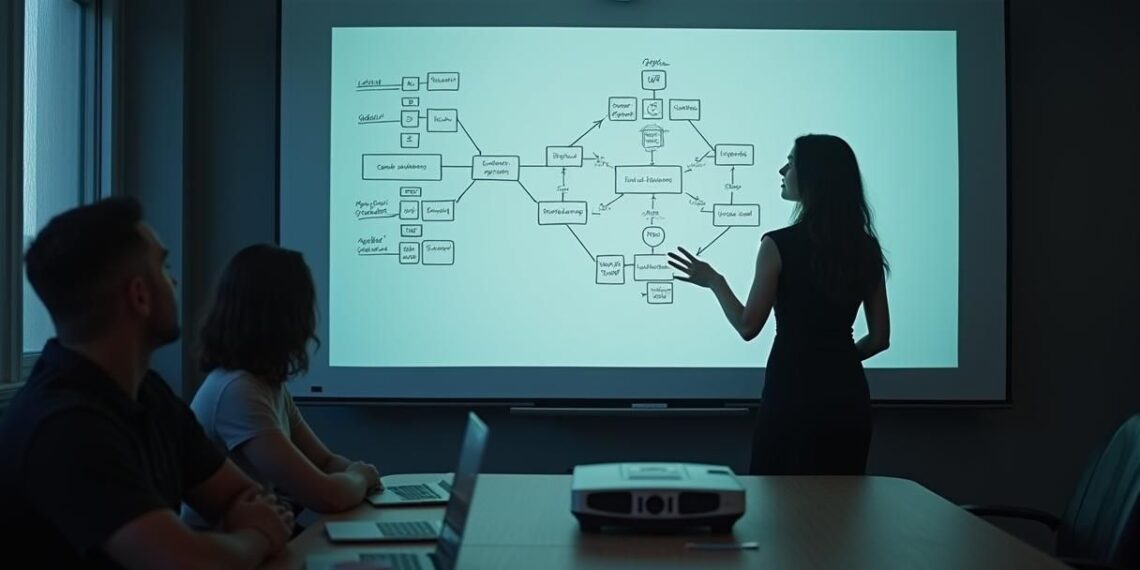A DevOps Engineer plays a crucial role in modern software development by bridging the gap between development and operations teams to ensure seamless software delivery. With the rise of cloud computing, automation, and continuous integration/continuous delivery (CI/CD) practices, DevOps engineers are in high demand in Malaysia. Here’s a step-by-step guide to becoming a DevOps Engineer in Malaysia.
Table of Contents
Toggle1. Understand the Role of a DevOps Engineer
What Does a DevOps Engineer Do?
- Develop and implement automated processes for software deployment and operations.
- Set up and manage CI/CD pipelines for continuous software delivery.
- Manage infrastructure as code (IaC) using tools like Terraform or Ansible.
- Monitor and improve application performance using tools like Prometheus and Grafana.
- Collaborate with developers, QA teams, and system administrators.
Key Skills Required:
- Programming: Python, Bash, or Ruby.
- Cloud Platforms: AWS, Azure, or Google Cloud.
- Automation Tools: Jenkins, GitLab CI, or CircleCI.
- Containerization: Docker and Kubernetes.
- System Administration: Linux/Unix proficiency.
- Version Control: Git.
2. Obtain the Required Education
Step 1: Complete Pre-University Education
- Secure strong grades in Mathematics, Physics, and ICT-related subjects in SPM or equivalent.
- Enroll in pre-university programs such as:
- Foundation in IT or Science
- A-Levels
- STPM
- Diploma in Computer Science or Software Engineering
Step 2: Earn a Relevant Degree
- Obtain a Bachelor’s Degree in fields such as:
- Computer Science
- Software Engineering
- Information Technology
- Systems Engineering
Top Malaysian Universities Offering Relevant Programs:
- Universiti Teknologi Malaysia (UTM)
- Universiti Malaya (UM)
- Monash University Malaysia
- Asia Pacific University (APU)
3. Develop Technical Skills
Master the following tools and technologies commonly used in DevOps:
| Skill Area | Tools/Technologies |
|---|---|
| CI/CD Pipelines | Jenkins, GitLab CI/CD, CircleCI |
| Containerization | Docker, Kubernetes |
| Cloud Platforms | AWS, Microsoft Azure, Google Cloud |
| Configuration Management | Ansible, Chef, Puppet |
| Infrastructure as Code (IaC) | Terraform, CloudFormation |
| Monitoring & Logging | Prometheus, Grafana, ELK Stack |
| Version Control | Git, GitHub, GitLab |
| Scripting & Automation | Python, Bash, PowerShell |
4. Gain Certifications
Certifications validate your expertise and improve employability. Popular certifications for DevOps Engineers include:
| Certification | Focus Area | Provider |
|---|---|---|
| AWS Certified DevOps Engineer – Professional | Cloud DevOps Practices | Amazon Web Services (AWS) |
| Google Professional DevOps Engineer | Cloud Operations | Google Cloud |
| Microsoft Certified: DevOps Engineer Expert | Azure DevOps | Microsoft |
| Certified Kubernetes Administrator (CKA) | Kubernetes Administration | CNCF |
| HashiCorp Certified: Terraform Associate | Infrastructure as Code | HashiCorp |
| Docker Certified Associate | Docker and Containerization | Docker |
5. Gain Practical Experience
Step 1: Internships
- Gain hands-on experience through internships with IT companies, startups, or cloud service providers.
Step 2: Personal Projects
- Build projects like setting up a CI/CD pipeline, deploying a containerized application, or automating a server setup.
- Showcase your work on platforms like GitHub or GitLab.
Step 3: Participate in Competitions
- Join hackathons and DevOps-related challenges to gain practical experience and network with professionals.
6. Explore Career Pathways in DevOps
| Job Title | Experience Level | Monthly Salary (RM) |
|---|---|---|
| Junior DevOps Engineer | Entry-Level (0–2 years) | RM 4,000 – RM 6,000 |
| DevOps Engineer | 2–5 years | RM 6,000 – RM 10,000 |
| Senior DevOps Engineer | 5–8 years | RM 10,000 – RM 15,000 |
| DevOps Architect | 8–10 years | RM 15,000 – RM 20,000 |
| Site Reliability Engineer | 5+ years | RM 12,000 – RM 18,000 |
7. Network and Stay Updated
- Join communities like DevOps Malaysia or AWS User Group Malaysia to connect with industry professionals.
- Attend tech conferences such as:
- AWS Summit Malaysia
- Microsoft Ignite
- CloudFest Asia
8. Pursue Continuous Learning
DevOps is an ever-evolving field. Stay updated by:
- Taking advanced certifications in automation, cloud computing, or security.
- Enrolling in online courses on platforms like Coursera, edX, or Udemy.
- Learning emerging tools and technologies like GitOps, serverless computing, and AI-driven DevOps.
FAQ: How to Become a DevOps Engineer in Malaysia
1. What qualifications are required to become a DevOps Engineer?
You need a Bachelor’s Degree in Computer Science, Software Engineering, or a related field.
2. How long does it take to become a DevOps Engineer?
It typically takes 4–6 years, including a 3–4 year degree program and 1–2 years of work experience.
3. Are certifications necessary for DevOps Engineers?
Certifications are not mandatory but are highly recommended to validate skills and improve employability.
4. What industries hire DevOps Engineers in Malaysia?
Industries include:
- IT Services
- Cloud Computing
- E-commerce
- Banking and Financial Services
- Telecommunications
5. What is the salary range for DevOps Engineers in Malaysia?
- Entry-Level: RM 4,000 – RM 6,000/month.
- Mid-Level: RM 6,000 – RM 10,000/month.
- Senior-Level: RM 10,000 – RM 15,000+/month.
6. Can I become a DevOps Engineer without a degree?
While possible, most employers prefer candidates with formal education. Certifications and self-learning can supplement skills for entry-level roles.
Final Thoughts
Becoming a DevOps Engineer in Malaysia is a rewarding career path with immense growth potential. By developing the right technical skills, gaining certifications, and staying updated with industry trends, you can excel in this dynamic field.









